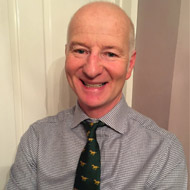Complaints cause ‘considerable stress and anxiety’

Martin is a senior vet at Salisbury Racecourse and a member of the Association of Racecourse Veterinary Surgeons.
‘As our regulator, the RCVS has the potential to cause members considerable stress and anxiety when complaints are received from members of the public,’ writes RCVS Council hopeful Martin Peaty in his election manifesto.
‘It goes without saying that dishonesty and behaviour seriously detrimental to patients or clients cannot be tolerated but increasingly complaints appear to be made maliciously, to avoid payment of fees or in order to pursue agendas unrelated to a member’s fitness to practice.’
If elected to RCVS Council, Martin says that he will do ‘all he can’ to ensure that the disciplinary process is as efficient in identifying and quickly dismissing these cases as it is in pursuing the genuine ones.
Martin is a senior vet at Salisbury Racecourse and a member of the Association of Racecourse Veterinary Surgeons (ARVS). With a keen interest in farming, he runs a small sheep flock with his wife, who is also a vet.
Graduating from the University of Bristol in 1990, Martin obtained his certificate in Equine practice in 1999 and his Certificate in Equine Surgery (orthopaedics) in 2007. He became an Advanced Practitioner in Equine Practice and Equine Surgery in 2015.
If elected to Council, Martin also hopes to play a role in the development of future policy to ensure that CPD works for members. In the past, he has been involved in mentoring new graduates and helping with the Professional Development Phase. He has also been a member of the RCVS Equine Board and BVA representative on the Advanced Practioner Working Party.
‘I count myself extremely fortunate to enjoy my work as a veterinary surgeon and am proud to be a member of our profession,” he adds. ‘My purpose in standing for Council is to ensure that as many colleagues feel the same way about working as veterinary surgeons.’



 The latest
The latest